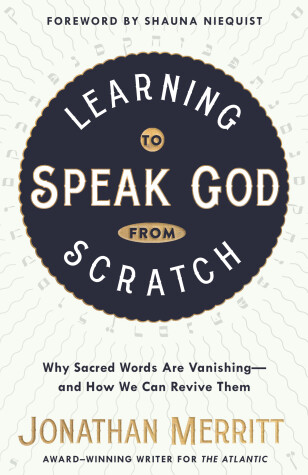
Jeff Sexton
Written on Jun 25, 2018
I began reading Jonathan's own work a few years ago with the release of A Faith of Our Own, and both it and the next book Jesus Is Better Than You Imagined were as though Jonathan was in my own head, even while speaking - as he does here - of lessons he has learned in his own life.
In this particular book, Jonathan again teaches us using lessons he has observed over the last few years of his own life and winds up touching on many issues of our day even while speaking to eternal truth.
At the end of the first part of the book, when he specifically tells more conservative thinkers that they may not like all that is to follow and brings up the Hebrew concept of midrash, my fears were raised. I just read another ARC of another contemporary that grew up a couple hundred miles away from our home region but in a similar background and time who had used the concept quite a bit in her new book, and let's just say I wasn't impressed with that effort.
Jonathan quickly dispelled the fears though, and actively sought to explain his own new understanding of the various sacred words we use in religious speak, particularly among Christians. He never claims authority, he just claims conversation and what he has found the words mean for him, and invites the readers to consider for themselves. Yet again, it turns out that he largely sees them exactly as I have come to - even without me realizing I had been on my own similar journey over the years. In one particularly poignant moment, he speaks to a word he used around the time of the publication of his last book and what he now thinks of it. In another, he uses Fred Rogers to explain the concept of neighbor. And in another, he exposes a revolutionary concept for thinking about a word that Christians have used far too long as a divider between the "righteous few" and the "pagan hordes". (My words in quotes there, not his.)
In the end, Merritt the Younger winds up finding a truth that I had tattooed on my own skin nearly a decade ago, and he exposes it in a new, fresh way for things that I had never considered.
That truth?
Jesus didn't define our words so much as redefine them in revolutionary ways. Ways that still speak to us 2000 years later, if only we will consider them anew.
Won't you join us in unpacking, examining, and rediscovering the ancient sacred words all over again?
